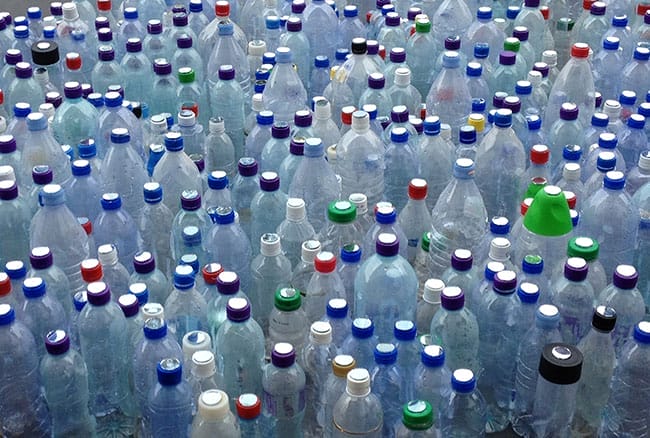Pound for pound, plastic is more valuable than steel, but when plastic is not aggregated, recyclers aren’t always able to work their magic to reuse this material and return it to use as a new product. In some countries, collection is done well. They have a deposit for the bottles, which are then returned into the system, keeping them out of our environment. Most countries, however, do not have such incentive programs, and collection is therefore limited, making it very difficult to achieve economies of scale solving the “first mile” problem, which is getting the material from the consumer’s hands to the recycling infrastructure. When you combine this with the fact that there is insufficient infrastructure, including a lack of drop-off and collection locations, it is easy to understand why bottles get left behind with the rest of the trash.
Why is there not a global deposit program on bottles? These programs work, with extremely high recovery rates of 75 to 95 percent. What would happen if a company took the lead, and offered this deposit for all of their bottles? What if they even went a step further and offered this for everyone else’s bottles? Think of the benefits to our communities if it were done, and to the reputation of the companies who do it.
One reason a global plastics deposit program isn’t a reality is that people assume this should be a legislated program, but that need not be the case. When legislation comes into play, there are always some stakeholders that fight the new programs, not wanting change and assuming that it will hurt their business, even if there is a level playing field. So, when a few stakeholders lobby against such a program, it often does not get the votes or traction to be implemented. We end up in a downward spiral of increased consumption, with lagging infrastructure to support the increased waste streams.
It’s not that large scale deposit programs are not happening because of underdeveloped regulation, however. It’s because companies have not invested enough to recover this material at scale, and because companies have not invested enough in technologies to make use of the PET that they collect for new bottles, clothing, food packaging or other products.
In the past, there was not much that could easily be done with polyethylene terephthalate (PET), but today, this material can be widely used in the secondary market. When you aggregate the material, it is more pure, valuable and usable by recyclers. Recent research from the IFEU Institute shows that refillable bottles have 50 to 60 percent lower global warming potential than one-way beverage containers.
In the U.S., based on the number of bottles used per year and considering the average recycling rate of 27 percent, over $800 million worth of PET per year is not getting recycled. That is a lot of money being left on the table there. Why wouldn’t a company choose to use some of its margin to clean our communities and waters?
Instead, what if we turn this concept on its head and have the global deposit program come from the companies that want to be seen as community leaders? There is no reason why this needs to be legislated to work. Companies with a vision, and knowledge of brand value creation, will see opportunities beyond just the perceived “costs” from doing something different. They will see the value in showing leadership, commitment to customers and benefitting the communities they serve. The positive PR value in itself is something that would likely outweigh the costs of making these changes.
This is a chicken-and-egg situation. Companies fear investing in infrastructure in order to be the recipient of PET material, because they are worried they won’t get the volume of material they need in the first place. But with a deposit, a significantly larger volume of material will be available, which means the value of aggregating PET material can then be realized.
By providing deposits, or “rewards,” the economic cycle in any given community will be “turned on,” causing PET bottles to be collected “en-masse,” which is the missing link in turning this problem of bottle waste into a big opportunity.
Who is going to start this cycle of community betterment? Who is going to bring “pride” back into the social metrics of our societies? Will it be your company?
Editor’s note: Doug is the founder of Ocean Recovery Alliance, sponsor of a “Global Deposit Challenge.” For more information, watch the video above or visit the Global Deposit Challenge Facebook page.

























